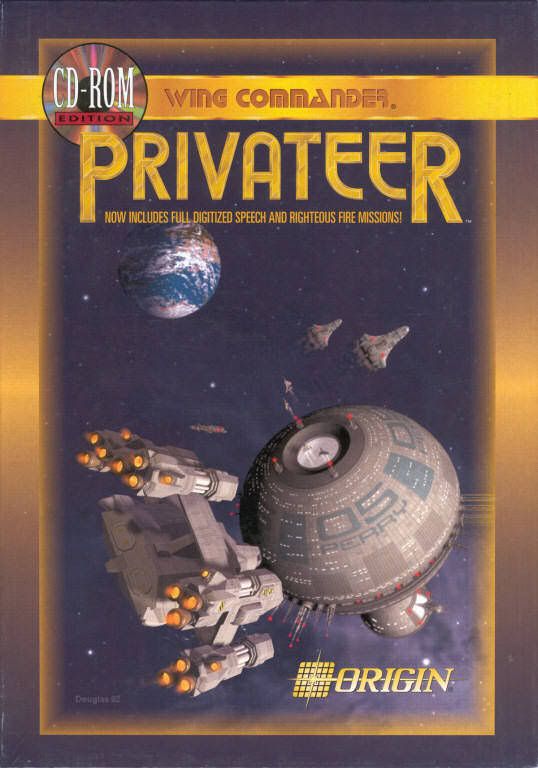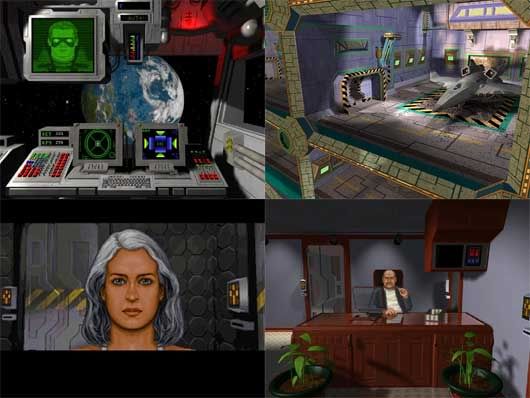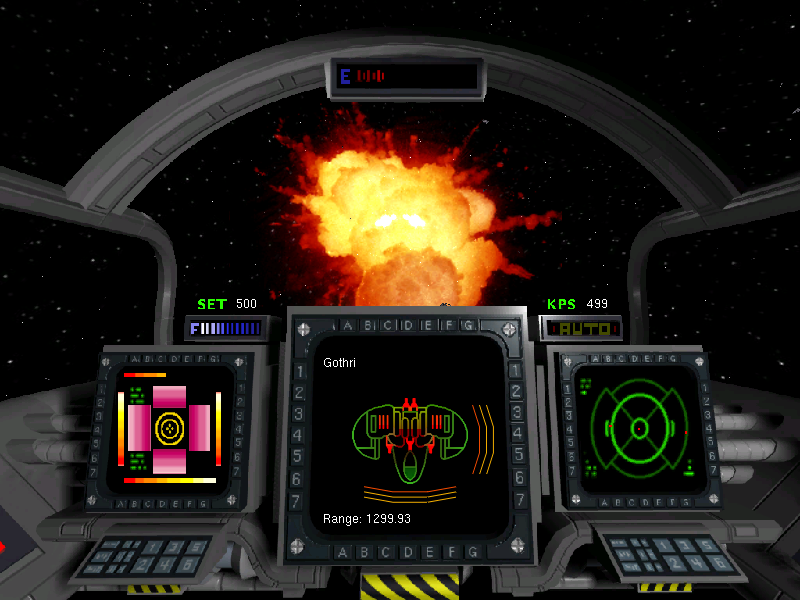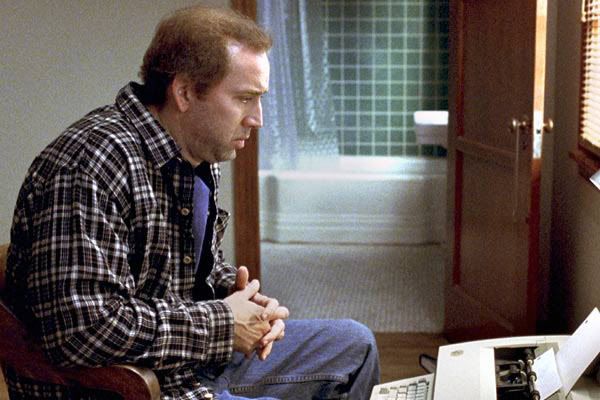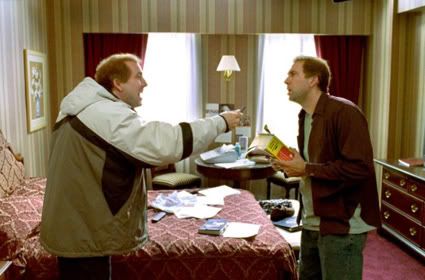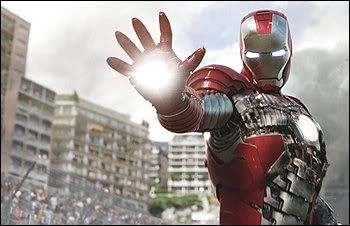
Crank up the Black Sabbath.
All right, before I go into detail about Iron Man 2, let’s get the nerd-wank out of the way first: How cool is this? We’re actually going to get a live-action Avengers movie. The threads are coming together more and more and I couldn’t help but gasp like a little girl at the growing implications of it. I know, I know, it’s a couple years away and I had a feeling the thing at the end of the credits was going to be what it ended up being, but still. Holy crap. HOLY. CRAP. The Avengers movie is actually happening. It’s TOTALLY HAPPENING. GUYS. THIS IS GOING TO ROCK SO HARD.
You good? I’m good. Let’s get on with this.
Iron Man 2 picks up right where its predecessor left us, with Tony Stark smirkingly admitting to the world “I am Iron Man.” Six months have gone by, in which Iron Man has stabilized east-west relations, saved a ton of lives and made PMCs think twice about their business decisions. On the surface, Tony seems as arrogant, charming and intelligent as before, but his behavior is growing more and more erratic. The truth is, the palladium that powers the arc reactor keeping his heart from being perforated by tiny slivers of shrapnel from one of his own weapons is poisoning him. Unless he’s able to come up with a solution, the miracle of science that both keeps him alive and powers the Iron Man suit is going to kill him.
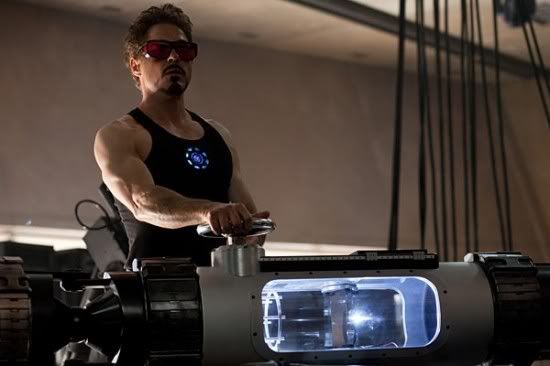
“Lightning in a bottle, huh? Let me see what I can do.”
This is really the central premise of the film, allowing director Jon Favreau and Robert Downey Jr. to build the character of Tony Stark. We don’t quite reach the bottom of his character arc, but there are shades of ‘Demon in the Bottle’ here and there. The first act of the movie, for the most part, is just Tony being a somewhat erratic douche, clearly riding high on the tides of his success partially because that’s who he is and partially because he doesn’t want people to know how sick he is, especially Pepper. The scenes between Tony and Pepper have a lot of the same chemistry as in the first film, and contributes to the sequel’s overall success.
The unfortunate side effect of putting Tony’s internal conflict front and center is that the villains of the movie are given secondary status. In the first film, once you got over the idea of ‘The Dude’ being an envious power-mongering weapons mogul, the villainy really wasn’t as interesting as Tony’s growth from carefree genius playboy to self-sacrificing superhero. Here, we get two villains, as we must inevitably in comic book sequels, but in this outing, the reason for their teaming up doesn’t feel contrived in the slightest, unlike the Riddler & Two-Face in Batman Forever.
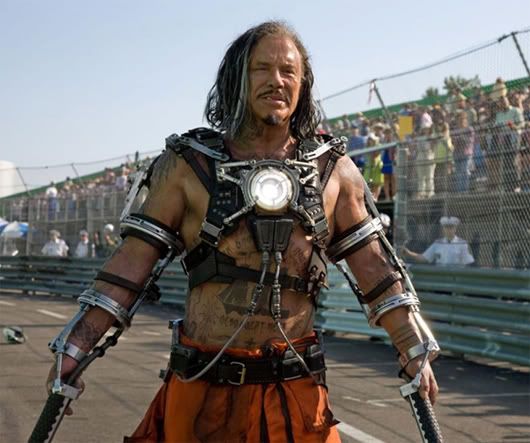
“Armor? Pfft. Real men need no armor.”
In Iron Man 2, we discover that the aforementioned arc reactor was actually a collaborative project between Tony’s father Howard and Russian physicist Anton Vanko. Anton’s son, Ivan, is very upset that Tony’s done so much with his father’s technology but hasn’t acknowledged the Russian’s brilliant assistance once. So, he miniaturizes the arc reactor himself and equips it with a pair of very nasty electrical whips. The other bad guy in this outing is wanna-be Justin Hammer, a weapons manufacturer who has Tony’s sort of money but none of his smarts, charm or bravery. He wants to try and put both Stark and Iron Man out of business but just doesn’t have the tech to do it. When he sees Ivan in action, though, he thinks he’s found a way to not only catch up to Stark’s level, but surpass it.
As I said, these guys are hanging out in the back seat for the most part, while we’re focused on Tony and how he’s continuing to grow. Integral to that growth are his friends, especially Pepper and James Rhodes. Pepper’s made CEO of Stark Industries which leaves Tony free to be Iron Man, while Rhody tries to convince his buddy to stop shouldering his burdens all by himself. While everybody in this movie does a really good job of inhabiting these comic book characters with humanity and emotional weight, Don Cheadle in particular steps up to have Rhody be the kind of best friend someone like Tony needs – a straight-laced, orders-following guy who still puts his friends first and isn’t afraid to put foot to ass when necessary.

It’s hard to consider a movie a failure when you get to see something like this.
This might seem to be a glowing review so far, but unfortunately Iron Man 2 doesn’t quite measure up to its predecessor. The energy, whimsy and pioneering that set the first Iron Man film apart is somewhat lacking here. Some of the more glaring problems are one or two plot holes, a couple gags that go on just a bit longer than necessary and the shoehorning of tie-ins to future projects. Don’t get me wrong, I love the hell out of Samuel L Jackson as Nick Fury, and in the words of MovieBob, the best way to describe Scarlett Johanson as the Black Widow is “HO-LEE…”, but honestly, there’s no need to pick up a metaphorical bullhorn to announce “THE AVENGERS MOVIE IS COMING.” We got that. We’re geeked for it. Tone it down and focus more on what’s happening right now. That said, there’s a gag involving something from an Avenger that, while slightly contrived, still struck me as very funny. I laughed at it hard.
Still, this does stand out among comic book movie sequels as one of the better entries. While it falls short of hitting the mark set by Spider-Man 2, it doesn’t miss by much. It’s fun without being stupid, action-packed without being terribly contrived, and errs on the side of humanizing the characters rather than reducing them to caricatures. I know there are some people out there who felt this was confused, messy or even boring, but I for one never felt bored watching the film. When there wasn’t action, there was good dialog, and when there wasn’t dialog there was character development. It’s not the best writing out there, to be sure, but you can certainly do a hell of a lot worse. It’s flawed, loud and might occasionally be a little annoying, but it’s also charming, fun and awesome – not unlike Tony Stark himself.
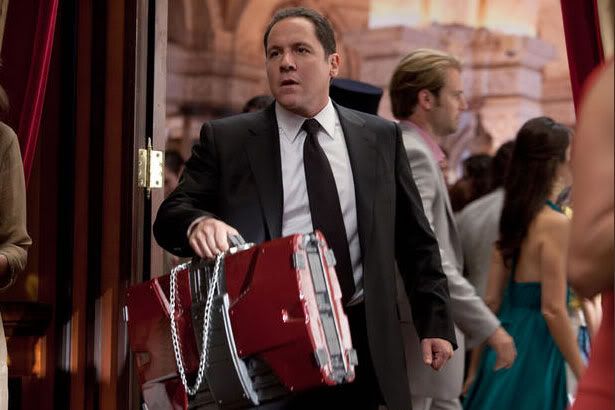
It’s totally his boss’ dirty laundry.
Stuff I Liked: The Hammer drones (or “Hammeroids” as Tony calls them) are neat, the moment that Tony has regarding his father about two thirds of the way into the movie, and the interaction between Downey and Jackson. Also, I’m glad we got more ‘Happy’ Hogan, even if I had to smirk at the one scene with him and Natasha in the car, considering Hogan’s played by the director.
Stuff I Didn’t Like: As I said, there are a couple holes in the plot, including the Grand Prix sequence of events and the whole Hammer-Vanko-bird thing, and some of the gags don’t quite hit the mark they’re going for. The SHIELD stuff, while not bad, still seemed to be more for the benefit of upcoming projects than supporting this one and thus felt a bit unnecessary. The final confrontation and resulting ‘race against time’ bit felt a tiny bit rushed and a little messy. Finally, while I really appreciated how they did the sequence and I’m aware I was supposed to feel this way, the scene where Tony’s drunk and in the Iron Man suit made me a little uncomfortable.
Stuff I Loved: The Mark V suit popping out of the briefcase. Whiplash’s manly first appearance on the Grand Prix track. Pretty much everything ScarJo did with her character. The continued and real-feeling relationship between Tony and Pepper. War Machine. Just… War Machine.
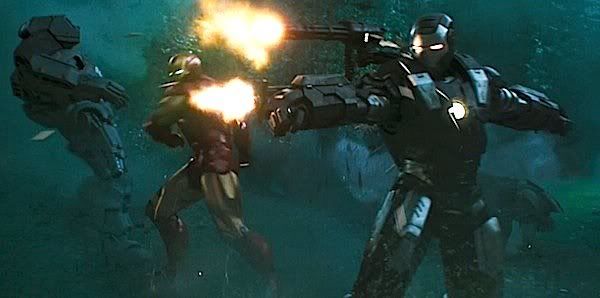
“It’s called ‘being a badass,’ Tony.”
Bottom Line: If you haven’t seen this in the cinema already, you might want to check it out, especially if you’re a fan of the first. I’ll probably pick it up on DVD when it comes out, because as flawed as it is, it’s still a pile of fun and has some great character-building moments and action sequences that are worth watching. It’s not fantastic, and not as good as the original Iron Man, but it’s still pretty damn good.

